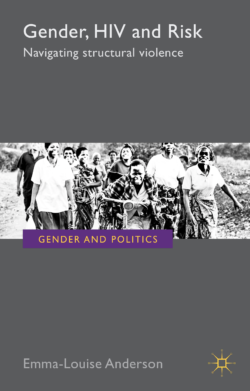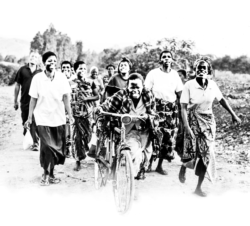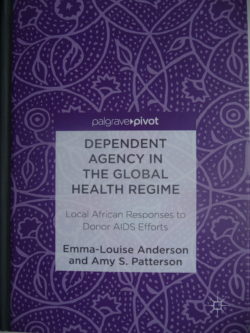Health
Health Systems for Health Security
We are a WHO Collaborating Centre working on the new Health Systems for Health Strengthening Framework. Our work on health systems and service delivery and has directly influenced the way policy makers understand health challenges, formulate policy and plan to implement policy.
Resilient and inclusive health systems
Garrett Brown and Owain Williams are conducting new research in tandem with the WHO and partners in the World Universities Network toward building evidence for substantial revitalisation of publicly provided health services in LMICs and HICs to provide resilient and accessible health services to counter pandemic threats and respond to the upstream determinants of health vulnerabilities.
Work by Anderson and Beresford highlights that it is crucial to tackle the roots of endemically weak health systems rather than simply improve short-term resilience to health crises. This includes building more inclusive and socially just national health systems. They examine the structural reasons behind consistently weak health systems in Sierra Leone and argues it is essential for deeper political solutions. Their findings have been disseminated to the US Centre for Disease Control (CDC) African Office and Sierra Leone Office, Oxfam International and MSF. They inform the recommendations in a report commissioned by USAID on 'Social Science in Epidemics - Ebola Virus Disease Lessons Learned'.
Anderson and Beresford 2016
Evaluating health financing and its effects on health system strengthening
Health and financing systems in southern Africa are increasingly based on performance-based models, in which bonuses are paid for meeting predefined targets. Yet, despite its popularity with development agencies, there is currently no robust analytical data to demonstrate how successful results-based models are in the long term and how they can be used to strengthen overall health systems and service delivery.
In collaboration with UK partners, the Ministry of Health Zimbabwe and the Ministry of Health Mozambique, Garrett Brown's collaborative research is currently mapping and evaluating the long-term effects of performance-based financing on health systems and identifying the contextual moderators that enhance or prohibit expected outcomes. The preliminary findings of this research have been shared with policy-makers with additional research being co-produced to provide an additional evaluative evidence-base.
Barnes, Brown & Harman 2015 Brown, Yamey & Wamala 2014Power and trust in global health diplomacy
Responding to complex trans-border health challenges necessitates cooperation and requires mutual trust between global actors. Our research explores how power and trust plays out in the relationships between health actors and the opportunities for strengthening cooperation and developing trust in African contexts where there is extreme dependency on donor funding.
Work by Emma-Louise Anderson, Laura Considine and Amy Patterson examines the relationship between trust and power, which has been neglected in the literatures on both international politics and global health. Drawing on original empirical material from interviews with actors central to delivering health care in Malawi and Zambia they develop an understanding of ‘trust as belonging’, which they define as the exercise of discretion accompanied by the expression of shared identities. They also conceptualise how trust as belonging interacts with power in a ‘power-trust cycle’, in which various forms of power undergird trust, and trust augments these forms of power. The power-trust cycle has a critical bearing on global health outcomes, affecting the space within which both local and international actors jockey to influence the ideologies that underpin global health, and the distribution of crucial resources.
Based upon empirical findings from Malawi, Emma-Louise Anderson develops the concept of ‘shadow diplomacy’ to understand how health is key to struggles for leverage by both international and local actors, giving rise to informal and subversive manifestations of diplomacy in the ‘shadows’. This enables us to understand how Western powers consolidate and obscure their continued domination, but also how African political elites leverage their dependency to subvert global power structures.
Anderson et al. 2021 Anderson 2018Gender and structural inequalities in health systems
Emma-Louise Anderson's research on gender and structural inequalities in Malawian health contributes to improving social welfare and gender equality in HIV policy.
 This research was co-designed with government and local NGO stakeholders in Malawi including the National Coordinators for the Coalition of Women and Girls Living with HIV/AIDS and the ‘Women, Girls and HIV/AIDS – Programme and Plan of Action’ at the Ministry of Gender. Based on extensive local research in two indigenous languages (Chichewa and Chitumbuka) it provides a critique of policy responses and de-invisibilises gender as a form of structural violence. The original contribution to global health and IR was recognised by the International Studies Association (ISA) Global Health Section and was awarded runner-up for the Book Prize (2016).
This research was co-designed with government and local NGO stakeholders in Malawi including the National Coordinators for the Coalition of Women and Girls Living with HIV/AIDS and the ‘Women, Girls and HIV/AIDS – Programme and Plan of Action’ at the Ministry of Gender. Based on extensive local research in two indigenous languages (Chichewa and Chitumbuka) it provides a critique of policy responses and de-invisibilises gender as a form of structural violence. The original contribution to global health and IR was recognised by the International Studies Association (ISA) Global Health Section and was awarded runner-up for the Book Prize (2016).
Read more:
Anderson 2015 Anderson 2012Infectious Diseases and Strengthening Pandemic Response
Our researchers have worked with the WHO, UNDP, Drugs for Neglected Diseases initiative (DNDi), Nuffield Trust, P4Health, regional health communities and national governments to produced original and policy-relevant insights into the politics and governance of infectious diseases and strengthening pandemic response.
COVID-19
Our researchers have played advisory roles in the UK Cabinet Office COVID-19 Response Roundtable, which examines key priorities regarding the economy, health and international relations. Our insights are subsequently included in a series of reports for Cabinet Ministers and the Prime Minister.
Garrett Brown works with the WHO Director of Evidence and Analytics for Health Security (EHS), which is operational arm of the WHO's new Health Security Preparedness programme, which has drawn on Brown's research (BMJ) to help underwrite the new ‘Health Systems for Health Security’ framework currently being developed at the WHO.
 Owain Williams has established the 'COVID-19 Diaries' as a community space for global public health scholars to record their lived experiences of the pandemic. Contributors include leading experts from around the world.
Owain Williams has established the 'COVID-19 Diaries' as a community space for global public health scholars to record their lived experiences of the pandemic. Contributors include leading experts from around the world.
Work by Emma-Louise Anderson, Laura Considine and Amy Patterson draws attention to how to power and trust matters for COVID-19 and the lessons we can learn for the current crisis. The failures of the global response highlight how power struggles between and among states, intergovernmental organizations, societal actors, and individual leaders can undermine urgently needed cooperation. We are building on this work to understand how to make the COVID-19 response more robust in Malawi as informing future preparedness across Africa.
Work by Yoshi Kobayashi, Howell and Heinrich examines how prejudice against foreign countries affect vaccine hesitancy. Dr Kobayashi is also working on three related projects, with colleagues in the United States and Japan, exploring: 1) how the WHO’s endorsements of vaccines influence people’s vaccination intensions; 2) how the WHO’s guidance against border closures and countries’ international legal commitments influence people’s preferences over border restrictions; 3) how prejudice against foreign countries affect preferences over foreign vaccines.
Work by Yoshi Kobayashi, Heinrich and Bryant is examining the implications of the COVID-19 Pandemic for public support for development aid. They conducted two survey experiments with 887 U.S. residents and demonstrate that people's concern about the impact of COVID-19 on their country’s financial situation reduces their support for aid.
PauL, Brown and Ridde 2020 Anderson et al. 2021 Kobayashi et al. 2021 Kobayashi et al. 2021HIV/AIDS
Our research examines the politics of health ‘from below’ and focuses on the micro-level of everyday experiences of HIV risk as serious objects of study.
Emma-Louise Anderson's work with Amy Patterson questions how local actors respond to Africa’s high dependence on donor health funds for HIV.
 Anderson's work on the gender dimensions of HIV risk provides local level evidence about local attitudes to HIV risk and cultural practices based upon speaking two indigenous languages. She critiques the responsibilisation of women and failures to engage with the underlying structural inequalities.
Anderson's work on the gender dimensions of HIV risk provides local level evidence about local attitudes to HIV risk and cultural practices based upon speaking two indigenous languages. She critiques the responsibilisation of women and failures to engage with the underlying structural inequalities.
Ebola
Our research on Ebola moves beyond thinking about creating resilient health systems to highlight the significance of both promoting transnational solidarity and African political solutions.
Markus Fraundorfer argues that a variety of actors from governments, academia, civil society and the private sector must join forces to establish a mechanism with the potential to considerably accelerate research and development (R&D) on Ebola. His work identifies the principal characteristics of this new mechanism to successfully pool resources, knowledge and expertise for the development of tested and effective treatment. The atmosphere of transnational solidarity with those African countries affected by the Ebola epidemic represented a unique window of opportunity to create such a mechanism.
Anderson and Beresford examine the political origins of the Ebola outbreaks in Africa, focusing on the structural reasons behind consistently weak health systems and evaluating the efficacy of international responses. Their work highlights the need for deeper political solutions and has been disseminated to the US Centre for Disease Control (CDC) African Office and Sierra Leone Office, Oxfam International and MSF. Their findings inform understandings of the political economy of the national and international response and the recommendations in a report commissioned by USAID on 'Social Science in Epidemics - Ebola Virus Disease Lessons Learned'.
Anderson and Beresford 2016 Fraundorfer 2016
Neglected tropical infectious diseases (NTIDs)
In our emerging work on neglected tropical infectious diseases (NTIDs) we focus on governance in South America. Markus Fraudorfer is interrogating regional cooperation on NTIDs and in related work with Garrett Brown is analysing the global-regional nexus on NTIDs governance.

